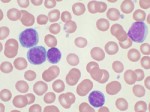Lessons from the Wakefield Case
So many others have written on Wakefield’s fraud, and considered the role of the press in perpetuating the notion that vaccines cause autism, I wasn’t going to cover it here on ML. But I do think there are a few instructive points from this “lesson” about medical communication and news:
1. People aren’t always rational in their decisions about health care. (This is an understatement.)






